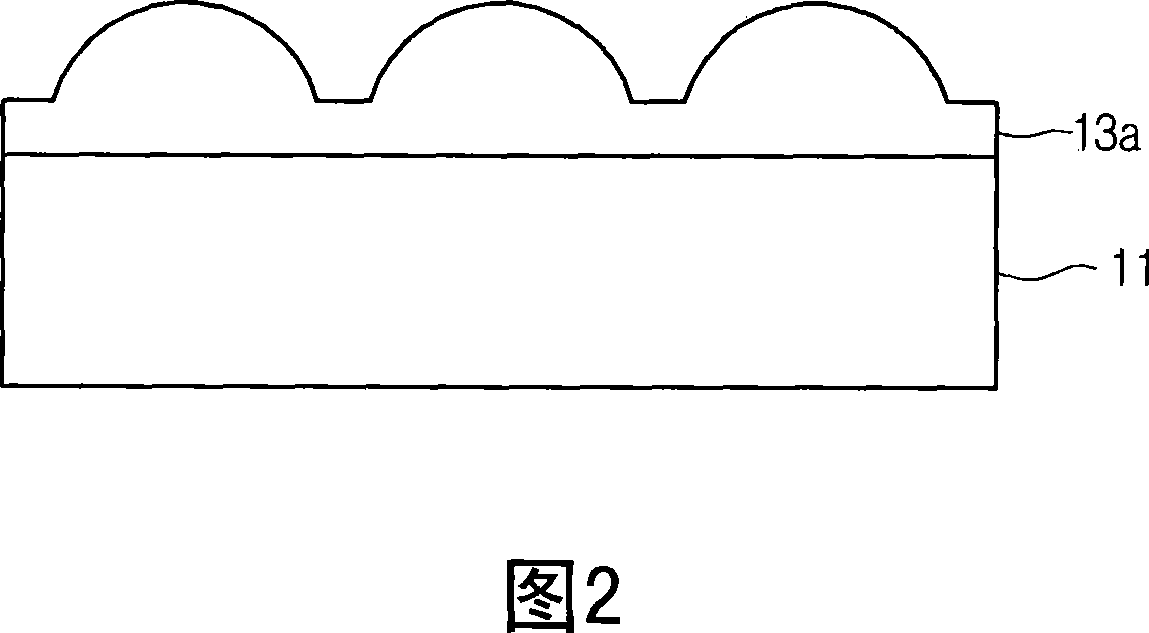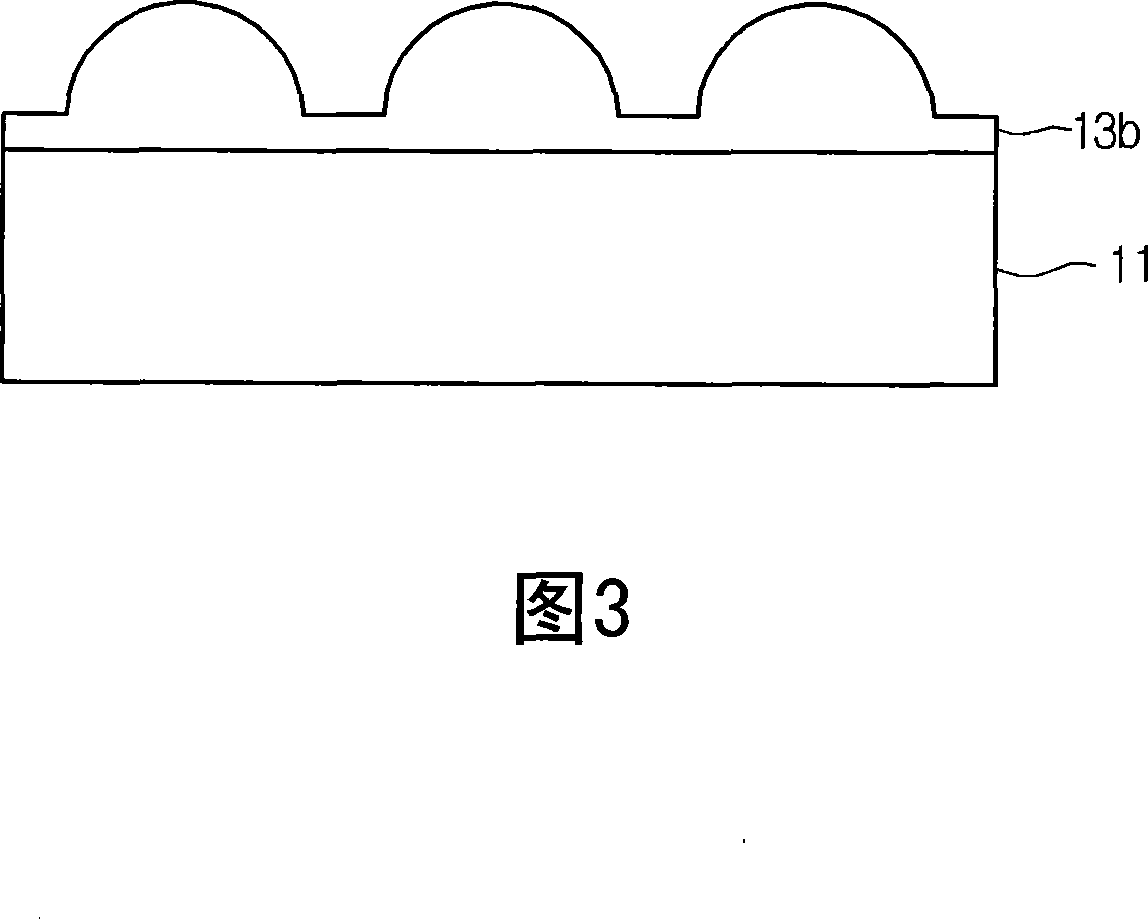Method for fabricating image sensor
An image sensor and pattern technology, which is used in semiconductor/solid-state device manufacturing, instruments, electrical solid-state devices, etc., can solve the problems of reducing the sensitivity of image sensors, reducing manufacturing output, etc., to improve sensitivity, reduce size, and reduce light convergence. effect of distance
- Summary
- Abstract
- Description
- Claims
- Application Information
AI Technical Summary
Problems solved by technology
Method used
Image
Examples
Embodiment Construction
[0015] In the description of the embodiments of the present invention, it should be understood that when a layer (or film), region, pattern or structure refers to another substrate, another layer (or film), another region, another When "on / over" or "under / under" a liner or another pattern, it may be directly on the other substrate, layer (or film), region, liner or pattern, or intervening layers may also be present. Furthermore, it should be understood that when a layer (or film), region, pattern, liner or structure is referred to as being "between" two layers (or films), region, liner or pattern, it is meant that it There may be only one layer between two layers (or films), two regions, pads or patterns, or one or more intervening layers may also be present. Therefore, this should be determined by the technical concept of the present invention.
[0016] Hereinafter, embodiments of the present invention will be described in detail with reference to the accompanying drawings. ...
PUM
 Login to View More
Login to View More Abstract
Description
Claims
Application Information
 Login to View More
Login to View More - R&D Engineer
- R&D Manager
- IP Professional
- Industry Leading Data Capabilities
- Powerful AI technology
- Patent DNA Extraction
Browse by: Latest US Patents, China's latest patents, Technical Efficacy Thesaurus, Application Domain, Technology Topic, Popular Technical Reports.
© 2024 PatSnap. All rights reserved.Legal|Privacy policy|Modern Slavery Act Transparency Statement|Sitemap|About US| Contact US: help@patsnap.com










